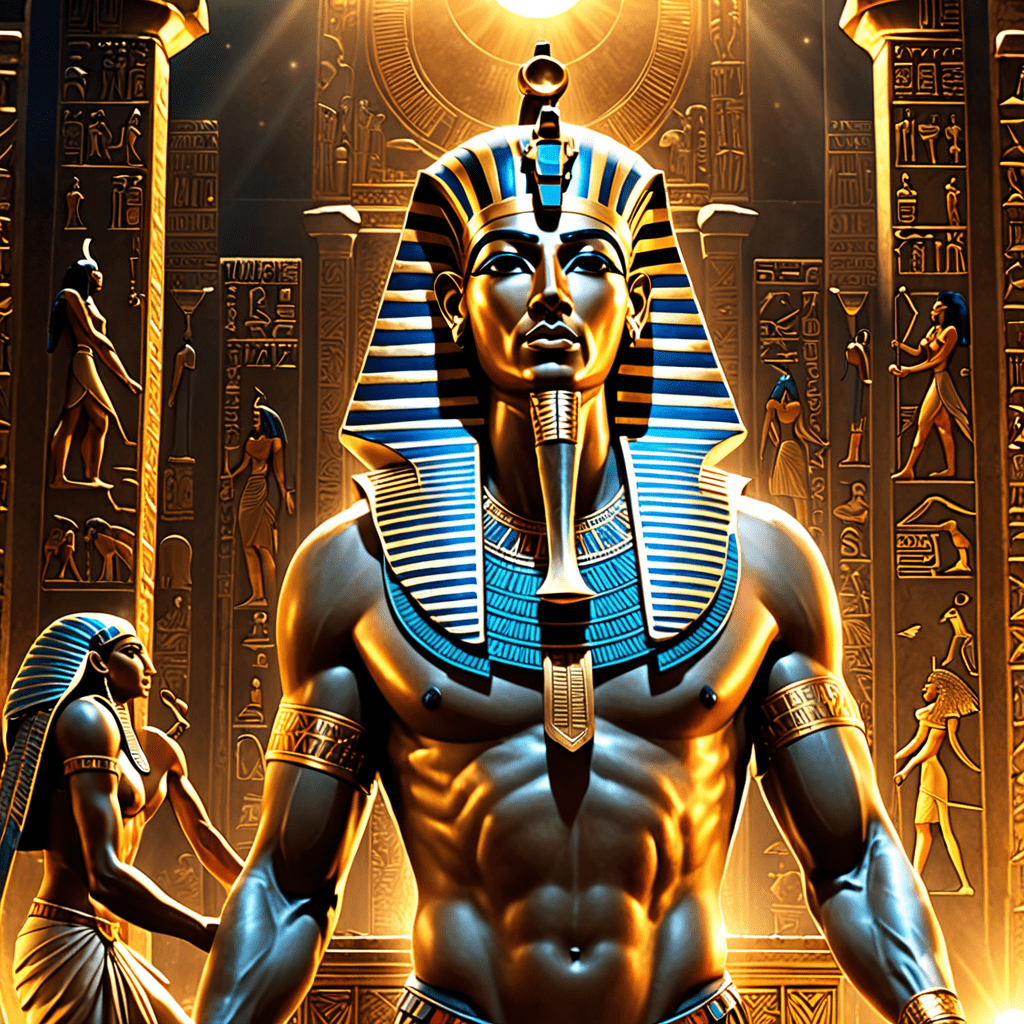The Sword and the Stone: The Myth Behind Excalibur
Introduction to the Legend of Excalibur
The legend of Excalibur is one of the most enduring tales in the Arthurian mythos, interwoven with themes of heroism, destiny, and leadership. At the heart of the story is King Arthur, a figure who has captivated audiences for centuries through various retellings of his life and adventures. Excalibur, his legendary sword, symbolizes the rightful sovereignty of Arthur, and its significance extends far beyond mere weaponry; it embodies the ideals of chivalry, honor, and the quest for justice.
Historical Roots of the Sword and the Stone Myth
The origins of the Excalibur legend can be traced back to various early references, including Geoffrey of Monmouth’s writings in the 12th century. In these texts, the sword is often depicted as a magical weapon, bestowed upon Arthur by mystical means. The historical and mythical significance of swords can be seen in many ancient cultures, where they were not only tools of warfare but also symbols of power and authority.
- Mythological Significance: Swords often represent the warrior’s spirit and the divine right to rule.
- Historical Context: Many ancient civilizations, such as the Celts and the Norse, revered swords as sacred objects.
The Role of Merlin in the Excalibur Legend
Merlin, the enigmatic wizard, plays a pivotal role in the Excalibur legend. As Arthur’s mentor and advisor, Merlin guides him through his journey from a young boy to a king. His magical abilities and wisdom are crucial in shaping Arthur’s destiny. Merlin’s relationship with Arthur is complex, filled with themes of prophecy and fate.
Throughout the legends, Merlin orchestrates key events, including the sword’s appearance. He is often depicted as a figure who possesses foresight, able to see the potential in Arthur and the challenges he will face as king.
The Sword in the Stone: The Test of Kingship
The Sword in the Stone is one of the most iconic elements of the Arthurian legend. According to the myth, the sword is embedded in a stone, and only the true king of Britain can pull it free. This act serves as a test of worthiness and divine right, symbolizing the qualities required to be a just and noble leader.
The symbolism of the sword includes:
- Authority: The ability to wield the sword signifies the rightful claim to the throne.
- Strength: The physical act of drawing the sword represents not just strength but also moral integrity.
- Destiny: The sword acts as a bridge between Arthur’s humble beginnings and his destined greatness.
Excalibur vs. The Sword in the Stone: Two Distinct Legends
While often conflated, Excalibur and the Sword in the Stone are distinct elements of the Arthurian narrative. The Sword in the Stone serves as the initial test of Arthur’s kingship, while Excalibur is typically presented as a gift from the Lady of the Lake, symbolizing ultimate power and the responsibilities that come with it.
These stories intertwine in various Arthurian literature, highlighting different aspects of Arthur’s character and the challenges he faces:
- Sword in the Stone: Represents the rightful claim to kingship.
- Excalibur: Embodies the ideals of chivalry and the burden of leadership.
Cultural Interpretations of Excalibur
The myth of Excalibur has transcended cultural boundaries, inspiring interpretations across different societies. From medieval literature to modern adaptations, the tale has evolved, reflecting the values and beliefs of each time period. Various cultures depict Excalibur with distinct characteristics:
- European Lore: Often emphasizes the chivalric aspects of Arthurian legend.
- Asian Adaptations: Some interpretations draw parallels to legendary figures like King Arthur, showcasing the universal appeal of heroism.
The impact of literature, film, and art has significantly shaped the perception of Excalibur. Notable works, such as T.H. White’s “The Once and Future King” and John Boorman’s film “Excalibur,” have brought the legend to life for contemporary audiences.
Excalibur in Modern Media
Excalibur’s presence in modern media is pervasive, with numerous adaptations in film, television, and literature. Each retelling brings its unique spin on Arthur’s story, exploring themes of power, betrayal, and redemption. Some notable adaptations include:
- Film: “Excalibur” (1981), which combines elements of fantasy and historical drama.
- Television: Shows like “Merlin” reinterpret the legend for a new generation.
- Literature: Novels like “The Mists of Avalon” provide a feminist perspective on the Arthurian saga.
These adaptations highlight the versatility of the Excalibur myth, allowing it to resonate with diverse audiences.
Symbolism and Themes Associated with Excalibur
Excalibur is rich with symbolism and thematic depth. The sword represents:
- Power: The possession of Excalibur signifies ultimate authority.
- Destiny: Arthur’s journey is intertwined with the fate of Britain and its people.
- Honor: The responsibility of leadership is a central theme, showcasing the weight of the crown.
These themes resonate throughout the Arthurian legends, emphasizing the moral complexities of leadership and the sacrifices required to maintain peace and justice.
The Legacy of Excalibur in Popular Culture
The legacy of Excalibur continues to inspire modern narratives across various genres. The sword has become a symbol of fantasy, often appearing in video games, comic books, and other media. Its significance in the fantasy genre is profound, influencing countless works that explore similar themes of heroism and adventure.
Excalibur’s impact is not limited to fantasy; it has also inspired discussions about power dynamics, leadership, and the moral responsibilities that come with authority.
Conclusion: The Enduring Power of the Excalibur Legend
The legend of Excalibur remains a powerful narrative that transcends time and culture. Its impact on myth and storytelling is profound, serving as a reminder of the ideals of bravery, honor, and the quest for justice. As audiences continue to engage with the tale of King Arthur and his magical sword, the legend of Excalibur endures, echoing the timeless themes of heroism and the complexities of leadership.



